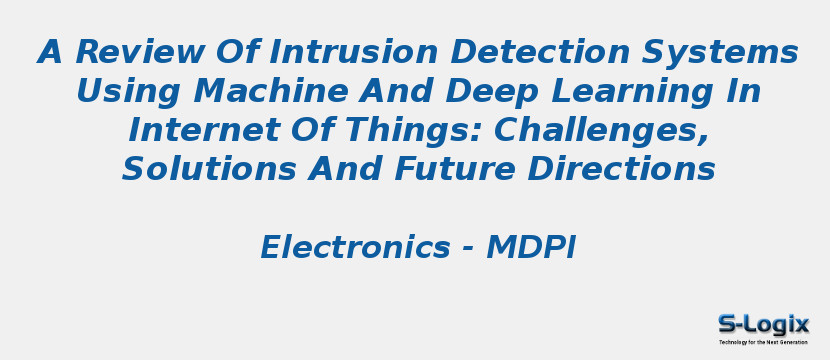Research Area: Machine Learning
The Internet of Things (IoT) is poised to impact several aspects of our lives with its fast proliferation in many areas such as wearable devices, smart sensors and home appliances. IoT devices are characterized by their connectivity, pervasiveness and limited processing capability. The number of IoT devices in the world is increasing rapidly and it is expected that there will be 50 billion devices connected to the Internet by the end of the year 2020. This explosion of IoT devices, which can be easily increased compared to desktop computers, has led to a spike in IoT-based cyber-attack incidents. To alleviate this challenge, there is a requirement to develop new techniques for detecting attacks initiated from compromised IoT devices. Machine and deep learning techniques are in this context the most appropriate detective control approach against attacks generated from IoT devices. This study aims to present a comprehensive review of IoT systems-related technologies, protocols, architecture and threats emerging from compromised IoT devices along with providing an overview of intrusion detection models. This work also covers the analysis of various machine learning and deep learning-based techniques suitable to detect IoT systems related to cyber-attacks.
Keywords:
Author(s) Name: Javed Asharf, Nour Moustafa, Hasnat Khurshid, Essam Debie, Waqas Haider and Abdul Wahab
Journal name: Electronics
Conferrence name:
Publisher name: MDPI
DOI: https://doi.org/10.3390/electronics9071177
Volume Information:
Paper Link: https://www.mdpi.com/2079-9292/9/7/1177
